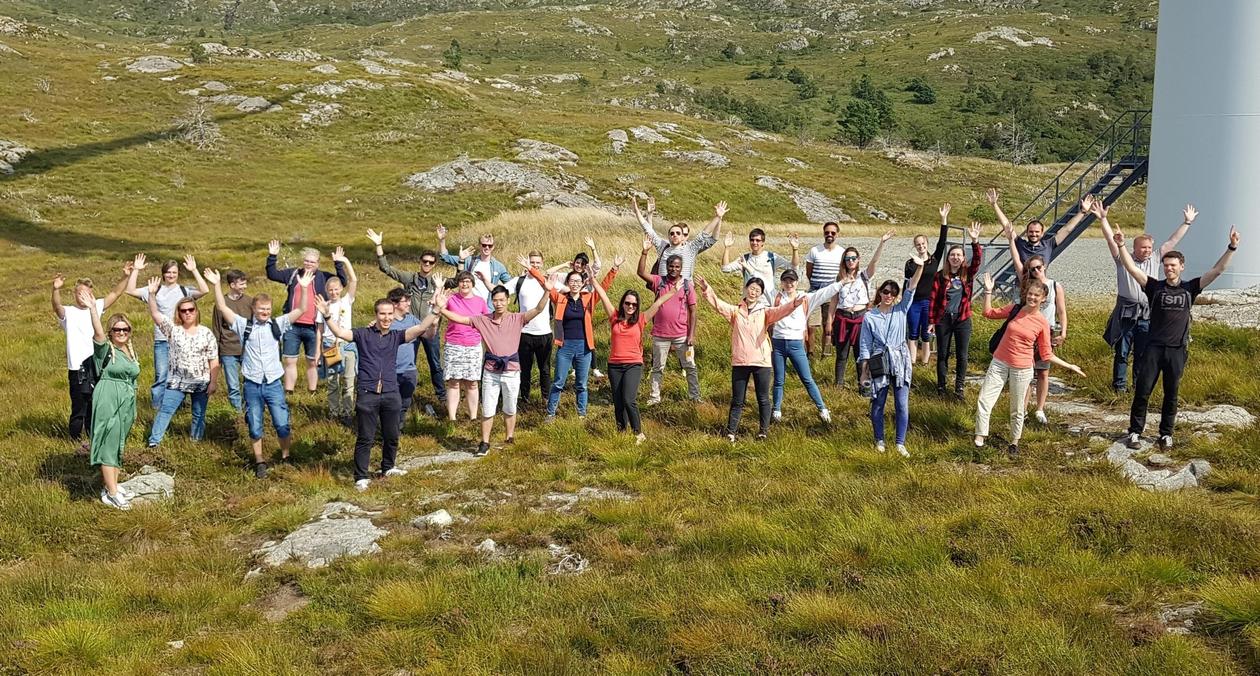"A unique opportunity"
NorRen Summer School invites participants from a wide spectre of disciplines, this year focussing on flexible energy systems.

Main content
Each year, the NorRen Summer School is arranged, this year by the University of Bergen (UiB), the Norwegian University of Science and Technology (NTNU) and the University of Oslo (UiO).
In 2020, the interdisciplinary PhD course has been held in Bergen, in western Norway.
The Summer School invites PhD-students working within the fields of energy.
"Summer Schools such as this one gives us a unique opportunity to invite young researchers from different disciplines to each other and introducing them to a more dynamic discussion and collaboration, more so than in a more normal setting," says Dag Rune Olsen, Rector of UiB.
Olsen met the Summer School participants Thursday 20 August 2020, welcoming them to the University of Bergen.
Flexible energy systems
The overall focus has been on flexible energy systems with a particular emphasis on wind, solar, hydrogen and the interactions between these technologies.
As part of an interdisciplinary approach, the participants have also gained insight into legal and financial framework conditions of flexible energy systems.
During the Summer School, the participants have had lectures by leading researchers and experts from industry and public administration as well as excursions to relevant industries at Stord.
Vebjørn Bakken, Head of UiO:Energy thinks that the Summer School provides the participants with more knowledge of the grand picture concerning energy and energy transition. The NorRen Summer School gives the PhD students the opportunity to interact with top scholars and experts, as well as with other summer school students from a wide range of disciplines.
"The PhD candidates meet many different actors from the field, and together this creates a backdrop where the participants are able to see their own role, how their specialised expertise can play a part in solving a bigger puzzle," says Bakken.

Carsten Hinzmann.
Solving problems together

Sæunn Halldorsdottir.
One of the most important things about the Summer School is its collaborative educational environment—participants work in interdisciplinary groups throughout the week on a topical project.
Carsten Hinzmann is currently a PhD candidate at Department of Physics and Technology at UiB. He particularly appreciates meeting people from varied disciplines. He worked on a project solving problems handling a flexible energy system.
"My group focused on how consumers can contribute in keeping an electrical system going. We need more and more energy, and we looked at the possibilites in producing more power as well as how we can transport energy" says Hinzmann.

Vebjørn Bakken.
Sæunn Halldorsdottir, PhD candidate at the Department of Mathematics at UiB, chose to join the Summer School because of its interesting theme. She researches geothermal energy.
"I cannot count the number of disciplines represented here, and there are so many different nationalities. I have found the experience very interesting," she says.
During the Summer School, she has worked with a diverse group of people.
"Coming from the hard sciences, it was an eye opener to solve problems with researchers from social anthropology, for example. It gives you a new perspective," Halldorsdottir says.
Uniting for energy research
Most of the institutions in Norway with a focus on energy join forces in NorRen Summer School.
"It is a good example of what we can achieve through collaboration, and shows our productive potential. As a smaller nation, we become stronger through working together, joining forces," says Rector Olsen.
Kristin Guldbrandsen Frøysa, Energy Director at UiB, agrees.
"The Summer School shows how technical, economical, political and social factors effect energy transition. To suceed in energy transition, we need to work together, combining researchers with knowledge of all these factors," the Energy Director says.
Vebjørn Bakken is already planning and looking forward to next year's summer school.
"This year has been a success, and the University of Bergen has done a great job as hosts," he says, adding that the collaboration with Norway's Centres for Environment-friendly Energy Research (FME) has been outstanding.

Vebjørn Bakken, Øystein Moen, Dag Rune Olsen, Kristin Guldbrandsen Frøysa (from left), Gry E. Parker, UiB and Asgeir Tomasgard, NTNU were not present when the picture was taken.


